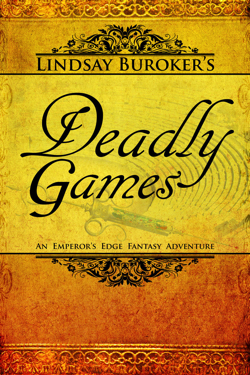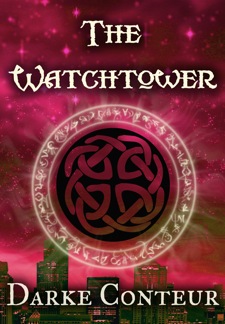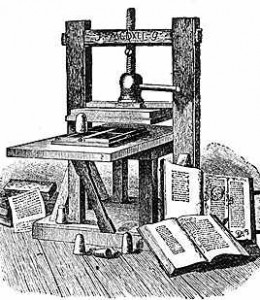As I’ve mentioned in previous posts (3 Reasons I’m Glad I Chose Self-Publishing, Why Self-Publishing Is So Popular Right Now), e-publishing and the growing popularity of ebook readers has made it attractive to stay independent and self-publish instead of pursuing an agent and a traditional deal. To add fuel to the fire, there have been cases of authors doing well, extremely well on their own.
When you read about John Locke or Amanda Hocking (who signed a 2-million-dollar print deal after becoming a Kindle bestseller), it gets you pretty excited about the idea of making a killing (or maybe just a decent living) self-publishing.
But then you get started, and you realize how much work is involved in book promotion and just how many books the successful people have out. Inevitably, some of the shine wears off. For all the Lockes and Hockings, there are thousands of other folks who are struggling to sell a book a day.
One of my Twitter buddies, Reena Jacobs, recently shared her sales information on her blog, and, while she has a short story that’s selling a respectable number of copies (possibly because it spent time as a freebie and got scads of downloads that way first), she has, a year into this, yet to break even on her two novels.
My sales stats
For myself, I’ve had more luck than some, less than others. I got started last December, and I’ve worked quite a bit at promotion. Some of you guys have seen my free podiobook, my free short stories (Ice Cracker II and Flash Gold are currently free), my goofy videos on YouTube, my various interviews and guest blog posts, and of course my daily chatter on Twitter (yes, some people have told me they actually found my work that way). Oh, and don’t forget my Facebook fan page (if nothing else, I have some fun steampunk pictures up there).
The last month I made less than $1,000 was in May. In August, I broke $3,000. Alas, earnings have dropped off a lot since then with October barely hitting $1,500. Nothing to scoff about, but I’m glad I still have income from other sources!
In August, my best-selling book (not counting freebies) was the 99-cent Emperor’s Edge (I make 70% on that one since I have it listed for $2.99 and Amazon is discounting it to price match other stores), and it sold about 900 copies and hovered around a 3,000-2,000 sales ranking in Amazon. Given that I’ve seen sales rankings of 400,000+, a sub-5,000 sales ranking is pretty darned good (though it’d be a lot more meaningful, from a financial standpoint, on a book priced at $5 instead of $1). More of that income came from Encrypted and Dark Currents, ebooks priced at $2.99 and $3.99 respectively. The earnings from my novellas weren’t substantial, since they’re priced less than $1.50 and on the 35% royalty plan.
In October, Emperor’s Edge was still my bestseller, but everything sold fewer copies across the board. I didn’t have any new books out (Hunted, the novella sequel to Flash Gold, came out in August), and I didn’t pay for any advertising (in September, which wasn’t as good as August but was still decent, I had a mention at EreaderNews that briefly propelled Emperor’s Edge up to a 400 sales ranking and a slot in the Top 10 of its genre bestseller list — I sold something like 100 copies of that book that day).
These ups and downs seem to be common amongst self-publishers. Derek J. Canyon, a SF and young adult author who started a couple of months before me, had a similar experience. He had a couple of great months right after he lowered his novel to 99 cents, but sales eventually slowed back down.
It makes sense that no one book is going to stay at a great sales ranking forever, and there are more and more people getting into the game all the time (I’d argue that authors starting today have a lot more competition than Amanda Hocking who, in early 2010, was still something of an early adopter — others started in 2009, but I’ve heard she was among the first to price an introductory book at 99 cents). And that brings me back to the title of this post.
How many people can really make a living self-publishing?
Even if you do well for a month or a couple of months, can you depend on that income?
For most of us, is each book limited in sales potential?
This whole e-publishing industry is so new that it’s hard to make predictions. I do think it’s possible, and will continue to be possible, for some authors to make a living this way, and not necessarily just the outliers. If you’re a good and prolific writer, I’d say, yes, you’ve got a good chance (if you don’t mind learning the online marketing side of things).
I do think being prolific is key. I only have three (soon to be four) novels out (yes, I have a couple of novellas and short stories out there, too, but as long as I’m pricing those at $1.49 or $0.99, they lack the income potential of the novels). If I had double the body of work, maybe I’d make $6,000 in a high month and $3,000 in a low month. In all except pricy metropolitan cities, that’d be enough for a decent lifestyle.
But what if you just don’t write that quickly? What if you’ve got a day job, a commute, school, kids, etc. and you can only write one novel a year and maybe a short story or two?
It’s always possible that that one novel will take off and become a bestseller, but it doesn’t happen that way for most of us. Odds are you’ll be looking at maybe earning back your initial expenses (editing, cover art, etc.) and making a little extra income each month. You have to decide if that’s enough for you.
And if it’s not (hey, lots of people have 9-5 jobs they want to escape), is there any hope? Is there any chance of quitting in the foreseeable future?
Of course. If you want something badly enough, there’s no stopping you. But you may have to get creative and embrace an entrepreneurial spirit.
Increasing your income by becoming an entrepreneuer
If you’re marketing your work, you’re probably already thinking like a business person, so this might be less daunting than you think.
We’ve talked about how much work goes into book promotion. For most authors, part of that work is going to go into building up a blog and social media platform (i.e. Twitter followers and Facebook Fans). As long as you’re building a brand anyway, why not start a side business?
A lot of indie authors are making some of their income from their novels and short stories and some of it from other sources related to self-publishing/e-publishing.
- After learning the ropes himself, Paul Salvette wrote an ebook teaching people how to format their ebooks.
- In a similar vein, Jacquelyn Smith formats ebooks for those who aren’t interested in DIY.
- David Wisehart took his author blog and turned it into an ebook promotion blog, and he sells daily sponsorships there for indies looking for a place to promote.
- After designing the covers for his own ebooks, Ronnell D. Porter started offering his cover-design services to others.
- I’ve seen numerous authors (some professional, traditionally published authors) offering editing and critique services on the side.
As for myself, I started my self-publishing tips site, in part because I like to teach what I’m learning but also because I’d like another source of income. I’ve made money from affiliate programs there already, and I’ll likely add advertising at some point.
Why bother, when I seem to be on track to be able to make an income solely from my ebooks eventually? Right now, most of that income comes from Amazon, and I’ve learned not to depend too much on one income source. You never know when that source will change the rules. I also like to have lots of projects to work on at once! I’m not sure I could ever see myself shut up in an office, writing on the same novel for six to eight hours a day (though some folks on Twitter have threatened to chain me to a desk for just that purpose…).
So, just to sum things up, the answer to my original question is: not everybody and probably not even most people, but if you’re really hoping to quit the day job some day, you can make it happen, one way or another.
 I’m staying at a hostel in Hawaii this week, and it’s been an adventure getting the ebook formatting and the final edits of Deadly Games done while sharing wifi with scads of people (not to mention sharing a room with seven other girls!), but everything is done now, and the ebook is online (I’ll work on getting a paperback version done after the holidays).
I’m staying at a hostel in Hawaii this week, and it’s been an adventure getting the ebook formatting and the final edits of Deadly Games done while sharing wifi with scads of people (not to mention sharing a room with seven other girls!), but everything is done now, and the ebook is online (I’ll work on getting a paperback version done after the holidays).

 Today’s question is one I received via email rather than through my Q&A blog post, but I know it’s a common one these days, so I wanted to take a stab at answering it here:
Today’s question is one I received via email rather than through my Q&A blog post, but I know it’s a common one these days, so I wanted to take a stab at answering it here:

